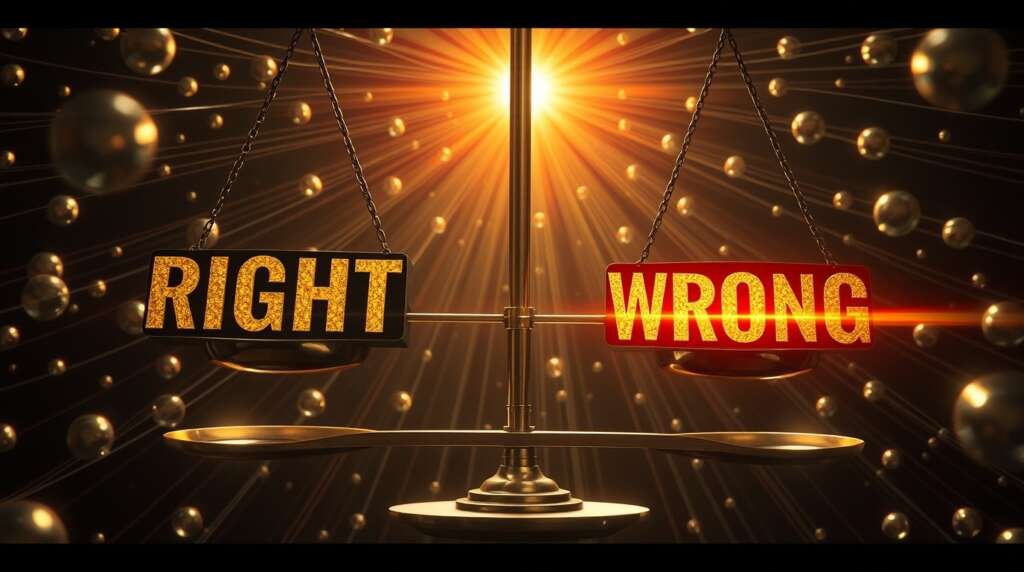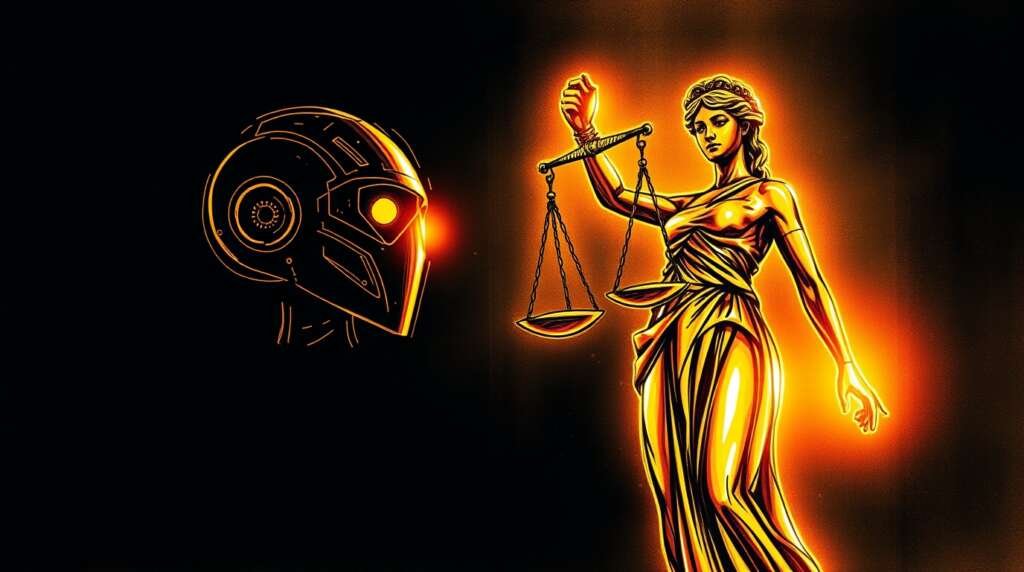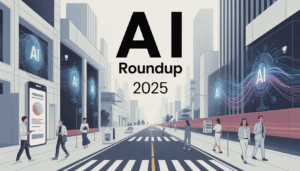Artificial Intelligence is revolutionizing industries and providing the necessary solutions for various problems as industry needs change in an unprecedented way. Like any other industry-changing disruptive technology, these solutions are being applied across all major sectors, like healthcare, finance, transportation, and entertainment. However, with the changing face of AI, its evolution is becoming harder to manage, which creates a pressing need for emerging laws and legal frameworks that will conduct this technology smoothly with regard to its impact and challenges. The implications of artificial intelligence for the law are too vast and multi-faceted and include liability, intellectual property, ethics, privacy and regulation. From business managers to government and individuals who may interrelate with AI technologies would find it absolutely essential to start comprehensively understanding these legal hurdles.
Liability and Accountability
One of the foremost legal challenges with artificial intelligence is determining liability for damage caused by AI systems. Unlike traditional software, AI systems are frequently written to “learn” from data and make decisions by themselves. This creates situations where AI makes decisions causing damage or harm, thereby creating some intricacies concerning attributing liability for that damage or harm. For example, if an autonomous car operating on AI technology hits another car, who will have to take responsibility? Is it the vehicle’s manufacturer, the developers of the AI, or the owner of the vehicle? The issue is compounded by the fact that AI systems often learn and evolve with system learning, potentially making decisions that are not expressly programmed by man.
The question of accountability becomes even more complicated in the health sector, where AI systems may assist in diagnosing diseases or suggesting treatment courses. When an erroneous diagnosis or assessment leads to harm via an AI-based diagnostic tool, who holds responsibility — the AI developers, the healthcare providers finally using it, or the medical institution? With AI getting deeper into high-risk industries, legal systems should evolve clear guides on liability, accountability, indemnification, and coverage. Presently, several legal frameworks in the jurisdictions are subpar at dealing with novel challenges that AI serves.
Ownership and Intellectual Property Rights

Increasing creations by artificial intelligence-powered systems have given rise to a lot of new questions regarding Intellectual Property Rights (IPR) and their ownership. Who can own the rights to a piece of music, a painting, a scientific discovery, or a written work developed by AI? In many jurisdictions around the world, the laws governing intellectual ownership have been designed for human creators, and up to now, there is no set standard for the determination of AI ownership.
If an AI develops a new invention or creates a piece of art, one would naturally want to know who owns that piece- Is it the AI? Or does the inventor of the device or the owner of the AI system gain this recognition? These questions would pose a potential conflict for creators, companies, and international establishments that relied on IP protections over their inventions. Sometimes, companies will want to shield the data they use to train their AI models from intellectual property hindrances. Data is an essential resource for training AI, and determining just who owns it can get really tricky. There is a high possibility that it might spark debates over IP rights and privacy.
Ethical Concerns and Biases

Artificial Intelligence systems may reflect the same biases present in the training data, and for this reason, many such AI systems have been demonstrated empirically to propagate such social biases-in regard to race, sex, class, or other factors. A notable variant of these algorithms has been fastened on facial recognition. The software exhibited racial biases, as people of color were more erroneous than white. The ethical implications of biased AI systems are deep-seated and serious, especially if they are applied in high-stakes areas like hiring, lending, law enforcement, and healthcare. Biased algorithms used to determine loan eligibility or evaluate job candidates could, in turn, lead to discriminatory outcomes for the very same people meant to receive the advantages being particularly sought after by fairness and equality.
The law struggles to catch up with the ethical encumbrances that come with the deployment of AI. It is indeed not clear how bias, fairness, and transparency issues should be managed. As a result, several legal authorities are beginning to pass laws requiring AI systems to be explainable and non-biased. The proposed Artificial Intelligence Act of the European Union is an example of this, aiming at ensuring these AI systems are transparent, do not discriminate, and are accountable.
Privacy and Data Protection

AI systems are chalking the best out of huge amounts of personal data to accomplish their tasks, such as personalized recommendations, targeted adware, or prediction analytics. Such use of big data brings grave concerns about privacy with respect to the collection, storage, and processing of such data. In some cases, AI systems train their algorithms with sensitive personal information such as medical records, financial information, and online behavior. If this data is not kept secure, the risk of a data breach and privacy violation creates huge trouble. Tracking individuals through AI for purposes like behavioral surveillance or prediction of personal actions raises fears of invasion of privacy and violation of the right to privacy.
In answer to data protection concerns, governments have put forth such adequate rules, such as the General Data Protection Regulation (GDPR) by the European Union, that must not be disregarded in terms of the collection, storage, and use of personal data. The GDPR grants more rights regarding personal data to individuals and thus necessitates companies to respect the right to privacy of their customers, thereby guaranteeing fundamental rights with respect to the use of personal data. Yet challenges prevail, for AI systems will have unique hurdles with the privacy laws-a particular focus on the “right to explanation” and the aspect of transparency in automated decision-making.
Regulation and Governance
With the rapid advancement of artificial intelligence, there are demands for its governance through stronger regulatory frameworks. The sheer diversity in various AI technologies and applications, combined with their rapid evolution, pose greater challenges to regulating them. Upon striking a balance between innovation on one hand and safety, privacy, and fairness, regulation is still an enduring challenge for policymakers across the world.
Governments and international organizations are evaluating various approaches to AI regulation. For instance, the OECD Principles on AI advocate for a human-centric approach to AI, emphasizing specificity in their formulation and accountability. Likewise, the Act on Artificial Intelligence of the EU intends to introduce a regulatory framework whereby the use of AI will be classified and its applications categorized according to the risks it poses and the requirements ensuring transparency, accountability, and oversight. Yet, there are no global agreements regarding how AI should be regulated, and thus, the legal terrain is still being formed. Different countries have adopted different approaches in AI governance that may lead to regulatory fragmentation and consequent problems for businesses working internationally. For example, AI regulations in the EU may be quite different from those in the USA, China, or elsewhere in the world.
Employment and Automation

It is argued that robotics automates tasks, most of which are performed by humans. While increased productivity, efficiency, and reduced operational costs are welcomed, there remain concerns about potential job losses in the future. From the legal viewpoint comes the possibility of various questions regarding workforce labor protection in the sectors that will probably be threatened by automation. Should mass retraining of such workers displaced by AI be policed, and how could that decision impact companies? Redirection of labor laws to meet the evolving needs of the computer field would include consideration of current economy workers or remote workers operating in technology.
The legal implications of AI are vast and will continue to evolve as the technology integrates into society. As AI demands continued scrutiny, some proactive solutions concerning liability and intellectual property, ethicality, privacy, and regulation pose a slew of challenges. It will require cooperation among governments, businesses, and individuals to ensure that AI is developed and employed in ways that are ethical, transparent, and compliant with the law. As technology advances, so too must we evolve our legal and regulatory regimes to ensure that this great transforming technology can benefit society and minimize risks.
Governments should consider how to align AI-driven automation benefits and honor the rights of the working class to enable the emergence of a new job landscape.




